Transcription of The EU's Economic Partnership Agreements (EPAs) with ...
1 The EU's Economic Partnership Agreements ( epas ) with countries in Africa, the Caribbean and the Pacific (ACP) Supporting businesses and communities in ACP countries Harnessing the benefits of trade Trade and investment can help countries develop their economies by: creating jobs generating income for people giving consumers and businesses access to a wider range of high-quality products cutting prices. epas help create the right conditions in African, Caribbean and Pacific (ACP) countries for trade and investment. Together with development aid, epas can deliver real benefits for ACP countries , including: More markets, more sales by: o opening the EU market fully to imports from ACP countries o strengthening and boosting trade between ACP countries .
2 Better infrastructure, administration and public services - to increase: o a country's capacity for producing goods and services o the transfer of knowledge needed to produce goods and services. More transparency and political and Economic stability o epas facilitate political dialogue - a key part of the relationship between ACP countries and the EU o By doing so they aim to uphold democratic standards, good governance and human rights. Benefiting businesses and communities across Africa, the Caribbean and the Pacific epas directly benefit ACP manufacturers, service providers, farmers and the communities in which they operate. Duty- and quota-free access for exports to the EU.
3 Free access to the EU market of half a billion people for all ACP products, providing plenty of scope for economies of scale. More integrated regional markets - benefiting ACP exporters by boosting trade between neighbouring ACP countries and regions. More flexible, simpler rules of origin these allow ACP States to: o use cheaper, better quality or more innovative inputs from other countries in their exports o thereby move up the value-added ladder rather than exporting predominantly lower-value raw materials So when a producer in one ACP country uses inputs from another, they don't have to pay customs duties when they export their final products to the EU. No undue competition - ACP countries will only gradually open their markets to EU imports, and producers of the most sensitive 20% of goods will enjoy permanent protection from competition No shocks epas phase out ACP duties on EU exports over periods of between 15 and 25 years, with exceptions and support for ACP countries that encounter problems.
4 Development dimension - epas also create opportunities for dealing with other issues relating to trade and development, such as poor infrastructure or burdensome red tape at customs. A context for wider reforms - epas are part of the wider development agenda for ACP countries , to: o strengthen the rule of law o attract local and foreign investment and o create the conditions for greater prosperity. Benefiting the world's least developed countries (LDCs) Many of the EU s ACP trading partners are LDCs. So they already enjoy duty- and quota-free access to the EU market under the EU's "Everything but Arms" (EBA) scheme. But epas offer LDCs even more. More flexible rules of origin - beyond free market access, epas come with more flexible rules of origin, making it easier for ACP countries to export products with inputs from other countries especially in key export sectors - agriculture, fisheries and textiles and clothing Help to address broader issues affecting trade, such as.
5 O technical barriers to trade o labour rights and the environment o poor infrastructure o inefficient customs and border controls, or o inadequate standards Support for regional markets and rules o epas help promote regional solutions, which are good for trade and development, by harnessing ACP regional integration initiatives already underway o they are also the fruit of regional negotiations which take account of regional needs and each country's sensitivities and conditions Safeguards for local economies - ACP countries that sign epas must gradually open some 80% of their markets to EU imports, but they can exclude products and apply "safeguard" measures to ensure that EU products don't compete against locally produced goods.
6 That means: o Economic disruption is avoided o local industries and consumers benefit from cheaper inputs and consumer goods. Respect for national sovereignty - instead of imposing development strategies, epas ask countries to determine their own development strategies and the pace and sequence of reforms. Partnerships of equals - epas are stable partnerships between EU and ACP countries . epas establish viable contracts between equal partners, and can't be altered without mutual agreement . This is an important difference compared to the EBA scheme - which is granted, and not negotiated, by the EU and favours long-term planning and investment for development.
7 Benefiting consumers and workers in Europe epas don't just benefit for people and communities in ACP countries . They have advantages for Europeans, too. Lower prices, better value epas remove trade barriers, which in turn produces healthy competition on the EU market and lower prices for consumers. More choice, better quality epas can help promote export of new products from ACP countries , and new varieties of familiar goods like coffee, cocoa, mangos, or pineapples. Ethical choices European consumers will have easier access to products from small-scale, family-run businesses in ACP countries . Jobs - in the long run, trade will help ACP countries become more prosperous.
8 In turn, that will generate more demand for European products and expertise, which will be good for jobs in Europe. The benefits of epas 12 real-life examples In Africa Madagascar textiles Textile producers in Madagascar have free access to the European market of 500 million consumers, thanks to the EPA between the EU and the Eastern and Southern Africa (ESA) region. with the added benefit of more flexible rules of origin, they can source raw materials including fabric from more efficient producers in Asia and still export their final products - clothes - to the EU duty- and quota- free. Ghana pineapples Pineapple exporters in Ghana can rest assured that their trading environment won t be upset by any unilateral decision by the EU, for example, to modify market access conditions for all middle-income countries and increase tariffs on specific products.
9 The EPA offers permanently duty- and quota-free access for all Ghanaian exports. This more predictable arrangement than in the past means Ghanaian exporters can safely invest more in processing and marketing their fruit. Senegal mangoes The EPA with West Africa will provide a stable market in Europe for around 25,000 households living from mango production in Senegal. It also contributes to programmes that help producers comply with the EU's plant health and food safety standards. C te d'Ivoire - cotton Cotton producers in C te d'Ivoire now have access to cheaper inputs such as fertilisers and machinery tools. At the same time, the EPA fosters local transformation of raw cotton into cotton-seed oil, cotton yarn, woven fabric, and embroidery, by: o shielding it from liberalisation and o granting free market access for those products in Europe.
10 Swaziland sugar Thanks to the EU's EPA with the Southern Africa Development Community (SADC), Swaziland s sugar exporters will now enjoy permanently duty- and quota-free access to the EU. This has increased their chances of European buyers renewing contracts with them. South Africa rooibos tea Farmers in South Africa who grow organic rooibos can now be confident that their product enjoys protection under EU law from counterfeit "rooibos versions, as it is now designated a 'geographical indication'. Namibia seafood Namibian fishermen export 75% of their hake catches to the EU. They'll now find it easier to charter vessels and still comply with the rules of origin, so that they keep their free access to European markets.

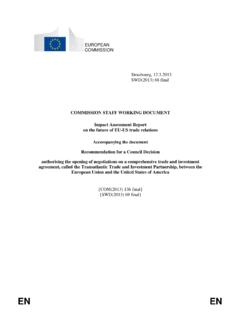
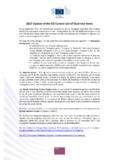
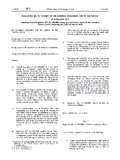
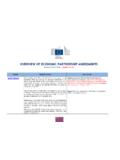
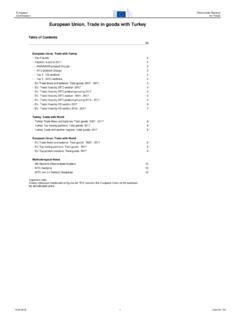
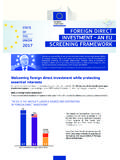
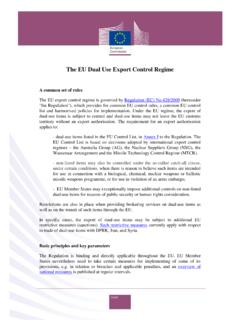
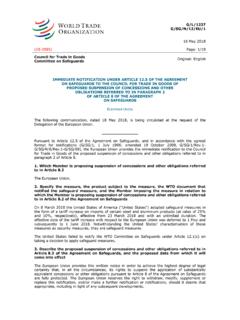

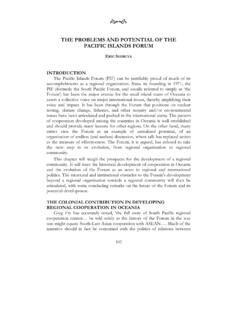
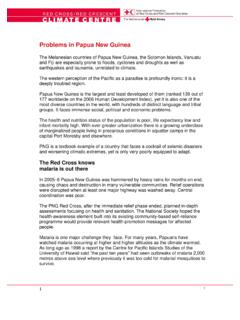
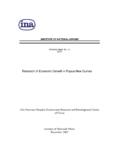



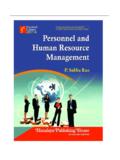

![PRINCIPLES OF MICROECONOMICS NOTES [For Class Test 1]](/cache/preview/c/c/5/5/4/c/d/0/thumb-cc554cd01400a0138a354d58cefa8eb7.jpg)
